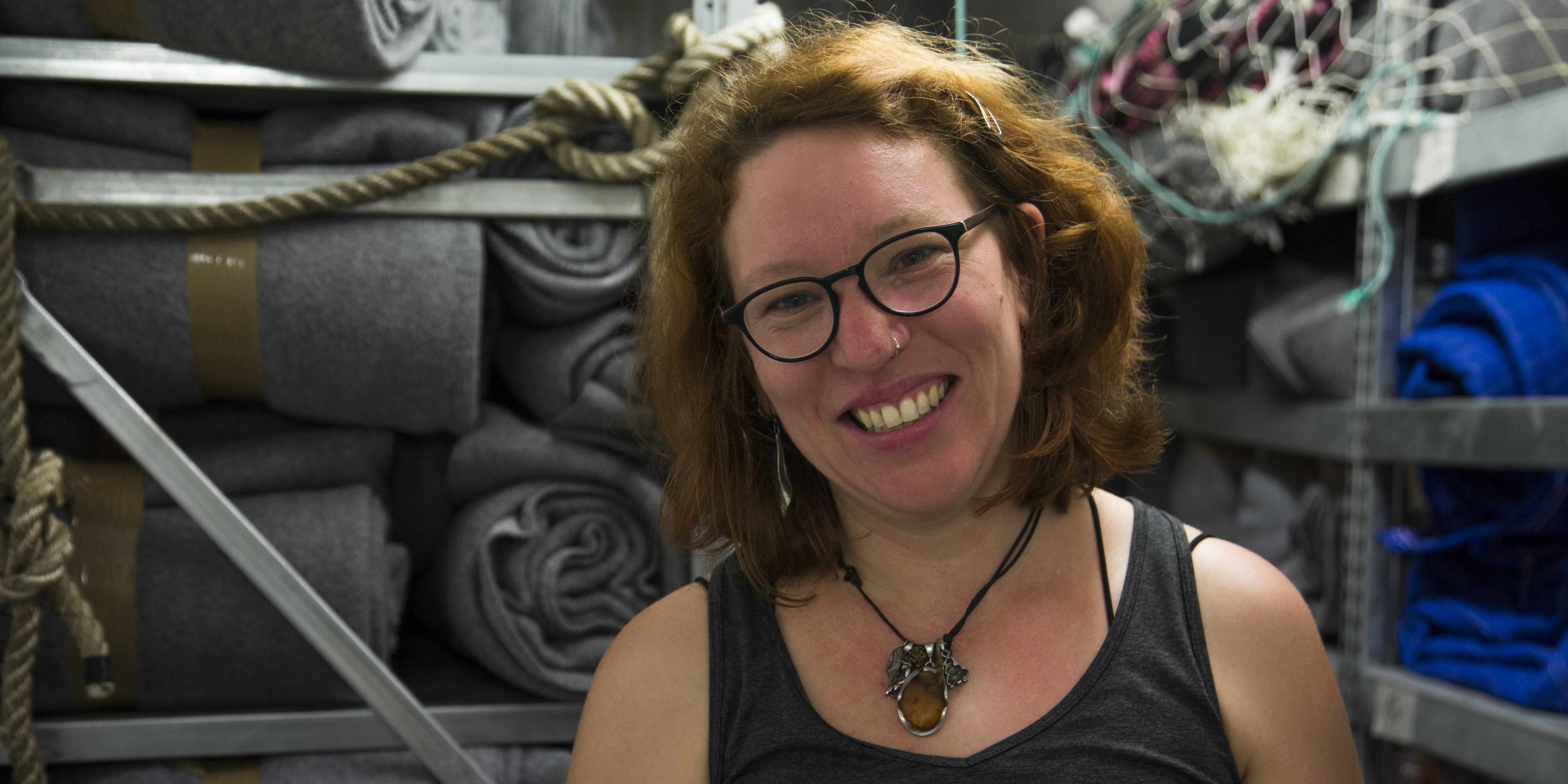Pediatrician Caro on her engagement with Sea-Watch
Carolin Möhrke works as a pediatrician in a small town in the east of Germany, most of the time anyway. She purposely took a part time job at the local hospital. When she is not at work here, the 38 year old does volunteer work. Caro has been part of humanitarian projects caring for children all around the world: in crisis areas like Haiti and Afghanistan, in countries with poor health care situations like Guatemala and India, or in the refugee camps on the Greek islands. “There was never a debate why I was there: I was treating babies that have no chance otherwise – regardless if their parents were Taliban or not.”
Pediatrics is her career, humanitarian work her calling.
Only with Sea-Watch, Caro realized what it means when humanitarian aid becomes a political issue. That sea-rescuers turned from heroes to criminals in the public debate within the last months doesn’t scare her away. “We’re still actively doing the same thing: making the lives of displaced people better.”
It was the case of a refugee who tried to return to Europe after his deportation on another boat and drowned on the Mediterranean which she could not shake off. “I started researching on a quiet night shift and couldn’t stop. It touched me so deeply that I wanted to do something instead of just watching Europe sealing itself off.” This is how Caro became one of the very first crew members.
[arve url=”https://www.youtube.com/watch?v=ehEIYkJh8M4″ title=”Caro im Bordkrankenhaus auf der Sea-Watch 3″ /]
By now, her tasks with Sea-Watch are manifold: she is not only responsible for the medical logistics, but also prepares the volunteers, together with the crewing-team, before departure.
They have a lot of questions before their first missions with Sea-Watch. “What kind of accidents are insured through Sea-Watch? Will we have internet access on board? What’s the best remedy for sea-sickness?” She enjoys being in contact with all crew members – not a small task: since 2015, some 500 machinists and captains, chefs and speedboat drivers have volunteered with Sea-Watch.
Because Caro has the best overview over the inventory of the on-board hospital, she’s a contact for all doctors on missions. “We’ve got a Whats-App group through which every medic-crew can reach me when they need something for the treatment on board. That way I am always closely involved and know what the crew experienced when they come back to land”, says Caro.
She herself was on the very first mission of the Sea-Watch 1 in the Central Mediterranean Sea. By now, a lot has changed: the new ship in the fleet, the Sea-Watch 3, has a lot less swell than the old fishing cutter.
To make sure the next crew can leave Malta’s port to make the escape route over the Mediterranean safer consumes every free minute Caro has. The hospital is almost ready – read updates on the mission here: https://sea-watch.org/sea-watch-3
Photo&Video: Lisa Hoffmann for Sea-Watch e.V.
Text: Theresa Leisgang











